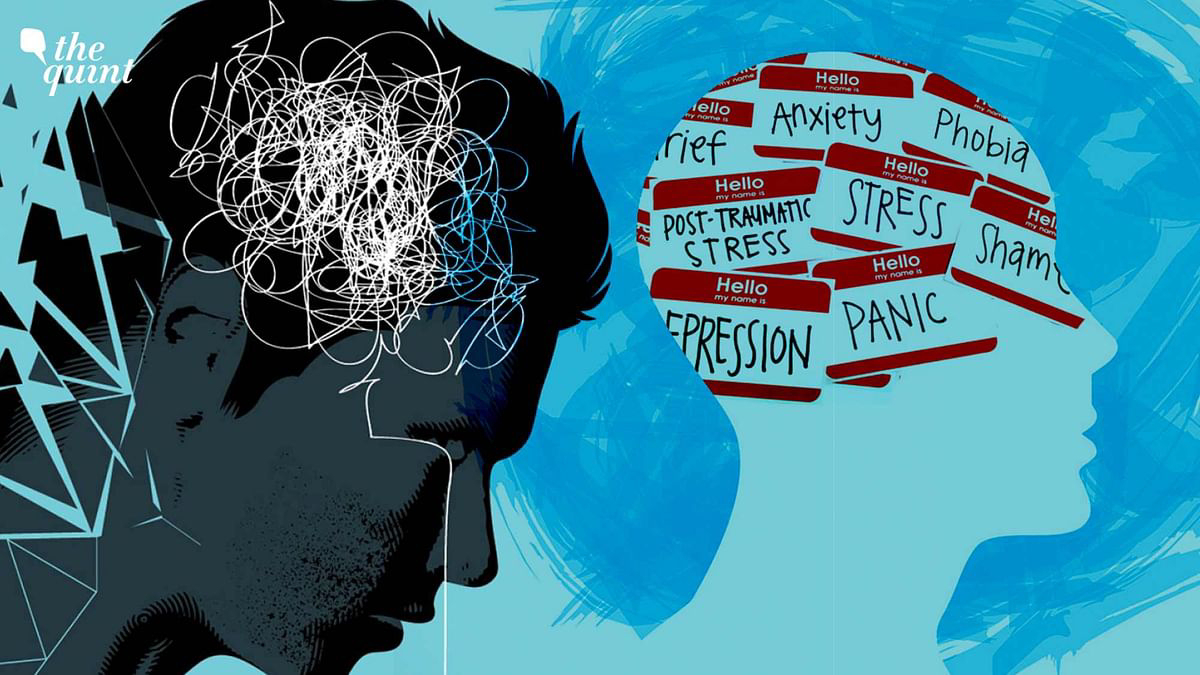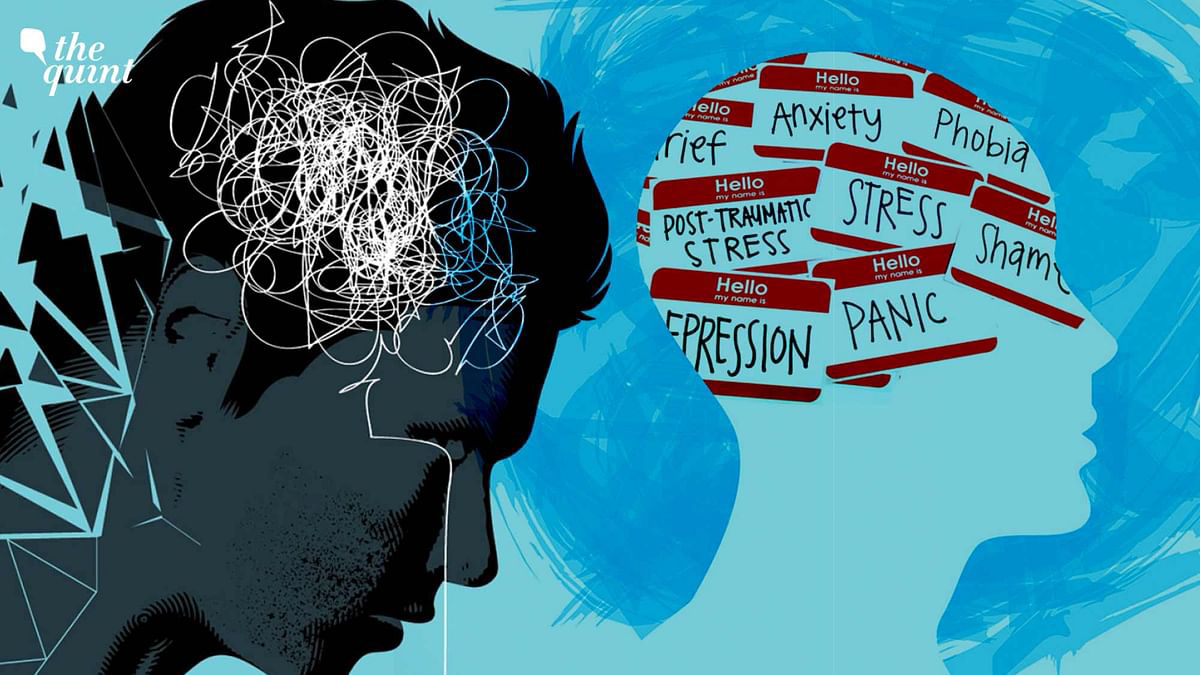These blogs are designed how to learn more about human's mindset, behavior, habit and deep belief, plus, observe about the life system and philosophy.
Using resilience in the face of discomfort
How to let go of old bad identities
How to stop drinking alcohol
Why is it important to raise awareness of mental health
Act of contrition prayer
What is the best anxiety medication with less side effects
Youth awareness of mental health
Why is awareness of mental health important
Can I counter sue for emotional distress
Hi, good reader, howdy, today I would like to share about the topic "Can I counter sue for emotional distress", the main reason why I choose that topic because many people don't persevere when they encounter situations they are not used to, a strategy we can use when facing emotional stress is to lower our ego level as if our abilities and our influence are not functioning normally , by lowering our ego levels, our conscious mind begins to look for data, validation and interpretation of reality, as humans, we can only carry out the roles given by God through our natural abilities, such as showing empathy, reading the surroundings, solving problems, surviving uncertainty, make decisions without complaining, So far humans do not have any right to use emotional strength when facing what humans hate, what we can do is train our instinctive reflexes to carry out God's plan into reality, So far, people think that what they feel is always right, even though in reality that's not the case, we as humans only require ourselves to provide services to other people's great hopes for the future, Before we demand something we don't like, we should look for valuable data or information to calm ourselves
If you think that you can claim someone else's fault just because you feel offended, then you should blame it on your unpreparedness, you cannot counter-sue for emotional distress simply because someone has filed a lawsuit against you. When someone sues you, they have a legal right to do so, and your ability to counter-sue is not based on personal preferences or emotional distress experienced by you or your family. Counter-suing typically requires valid legal grounds, such as a separate claim related to the same incident or a different cause of action. If you believe you have a valid claim, it’s essential to consult with a legal professional to assess your options and determine the best course of action.
There is a time for everything, if we are angry or vengeful just because we dislike it, then in the future we must be prepared to face people who increasingly distance themselves from us, The first step we can take when facing emotional stress is to move away from sources that make it difficult for us to adapt, By giving time to our feelings, we can activate logic to work and see the world around us without reacting, The second step we can take when facing emotional stress is: Eliminate something that makes our worries arise , Hopefully with the two methods above, we won't easily sue other people for their mistakes, In fact, we can look for loopholes in every problem and build the abilities of other people who feel unable to face reality.
Emotional distress animal
When encountering a distressed animal, it’s essential to recognize the signs that indicate they might need help. Here are some features to look out for:
Nocturnal Animals Active During the Day: If you see animals that are typically active at night (like possums) out during the day, it’s a sign they might be in distress.
Tree-Dwelling Animals on the Ground: Koalas and other tree-dwelling animals found on the ground are likely disoriented or injured.
Loss of Balance, Collapse, Confusion, or Panting: Birds or animals displaying any of these symptoms may require urgent care.
Remember, if you come across a wild animal that appears docile—meaning you can approach it without it running away—this is a clear sign that it needs help. Here’s what you can do if you find a visibly distressed animal:
Handle with Care: Wrap the animal loosely in a blanket or towel (if safe) and place it in a cardboard box. Then, put the box in a dark, quiet, and cool area.
Offer Water, Not Food: Provide cool water in a bowl for the animal to lap from. Do not pour water into its mouth, as this can cause additional distress.
Seek Professional Help: Call a wildlife carer or your local vet immediately. They can guide you on the next steps.
Remember, if you encounter an injured or heat-stressed flying fox (fruit bat), do not touch it—call a wildlife carer for advice instead. Let’s all do our part to help our native animals in need!
Confucius philosophy
Hi, good reader, today I would like to share about the topic "Confucius philosophy", the main reason why I choose that topic because many people admire his groundbreaking ideas, as we know that Confucius (孔子), also known as Kong Fuzi, was a Chinese philosopher who lived during the Spring and Autumn period. His teachings and philosophy, collectively known as Confucianism, have profoundly influenced East Asian culture and society. Let’s explore some key aspects of Confucius’s philosophy:
- Ethics and Morality: Confucius emphasized personal and governmental morality. His teachings revolved around correctness of social relationships, justice, kindness, and sincerity. He believed in the importance of cultivating virtuous character and maintaining harmonious interactions with others.
- Ren (仁): Central to Confucian thought is the concept of ren, often translated as “benevolence” or “humaneness”. It refers to the quality of compassion, empathy, and kindness toward others. Confucius believed that practicing ren would lead to a harmonious society.
- Filial Piety: Confucius emphasized the duty of children to respect and care for their parents. Filial piety was considered a fundamental virtue, and it extended beyond the family to loyalty and respect toward rulers and ancestors.
- Education and Self-Cultivation: Confucius believed in the transformative power of education. He taught the Six Arts, which included music, archery, charioteering, calligraphy, mathematics, and ritual. These arts were essential for self-improvement and moral development.
- The Analects: The Analects of Confucius (Lunyu) is a collection of sayings and ideas attributed to Confucius. It covers various topics, including ethics, governance, and personal conduct. The Analects serve as a foundational text in Confucianism.
- Legacy and Influence: Confucius’s ideas gained prominence during the Warring States period but faced setbacks after the Qin conquest. However, under Emperor Wu of Han, Confucianism received official sanction. During the Tang and Song dynasties, it evolved into Neo-Confucianism, shaping Chinese culture and way of life.
Confucius’s teachings continue to resonate, emphasizing the importance of virtue, social harmony, and lifelong learning. His impact extends far beyond his lifetime, making him a revered figure in Chinese history, until now many Chinese people admire Confucius's philosophy, as far as I observe, many people believe that Confucius's philosophy can be applied into real life because his teaching can make a better way to human's life, when reality opposes people's idealism, instead Confucius advises people not to object or not to oppose the reality, as we know people want a better life, but it doesn't mean people's idealism must happen into reality, the reason why human's idealism doesn't always happen into reality because God doesn't want human's desire dominating in this life, besides that, human's idealism is more dangerous than God's idealism, as human being, we can't always dominate the world by our desire, what we can do is offer our service to the world, the more we offer a better service to the world, the more we get the power to conquer the world, I think my explanation is enough, hopefully this article can give you an insight, good luck.
Descartes philosophy
Hi, good reader, good day, today I would like to share about the topic "Descartes philosophy", the main reason why I choose that topic because many people admire about his personality and his science work, as we know that René Descartes, a French mathematician, scientist, and philosopher, is widely regarded as the founder of modern philosophy. many people think that his principle is like Socrates, Greece Philosopher, Rene Descartes discovers many things that can resolve the problematic mindset where it occurs to the modern age, His groundbreaking ideas have left a lasting impact on various fields. Let’s delve into some key aspects of Descartes’s philosophy:
Cogito, Ergo Sum: Descartes famously declared, “I think, therefore I am” (originally in French: “Je pense, donc je suis”). This profound statement captures his epistemological foundationalism. By applying methodical doubt, he dismissed knowledge derived from authority, senses, and reason. Instead, he grounded his new epistemology on the intuition that when he is thinking, he exists.
Mind-Body Dualism: Descartes formulated the first modern version of mind-body dualism. According to his metaphysical framework, the mind (essence of thinking) and matter (essence of extension in three dimensions) are radically distinct entities. This distinction laid the groundwork for the mind-body problem that continues to intrigue philosophers and scientists.
Rationalism and Innate Ideas: Descartes’s metaphysics is rationalist, emphasizing innate ideas of mind, matter, and God. He believed that certain truths are inherent within us, independent of sensory experience. However, his physics and physiology were empiricist and mechanistic, based on observation and sensory data.
- Notable Works: Descartes authored several influential works, including:
- “Meditations on First Philosophy”: A foundational text that explores skepticism, the existence of God, and the nature of reality.
- “Principles of Philosophy”: An exposition of his philosophical system.
- “The Discourse on Method”: Where he introduced his famous maxim “Cogito, ergo sum.”
- “La Géométrie”: A work that contributed to the development of analytical geometry.
- “The Passions of the Soul”: An exploration of human emotions and their connection to the body.
Descartes’s legacy extends beyond philosophy; his influence also permeates mathematics, with the Cartesian coordinate system named after him. His commitment to reason, doubt, and foundational thinking continues to inspire scholars and thinkers across disciplines, now I have question to you, if you have daily problem which often happens, do you apply Descartes's groundbreaking idea or not?, if you can understand His mindset, means, you can understand his perspective, finally you can do like what Descartes did in the past, remember this; problem is problem, problem doesn't need the solution from you, problem is designed to develop your mindset an improve your troubleshooting's capacity, don't ever think problem can be solved by your service, problem abides in the world because many people are willing to manifest the problem into reality, if problem can be solved by human being, it means, the world will end, problem will never be settled down, it is just hidden into human's incapacitation, hopefully this article can help you to improve your life career, good luck.













